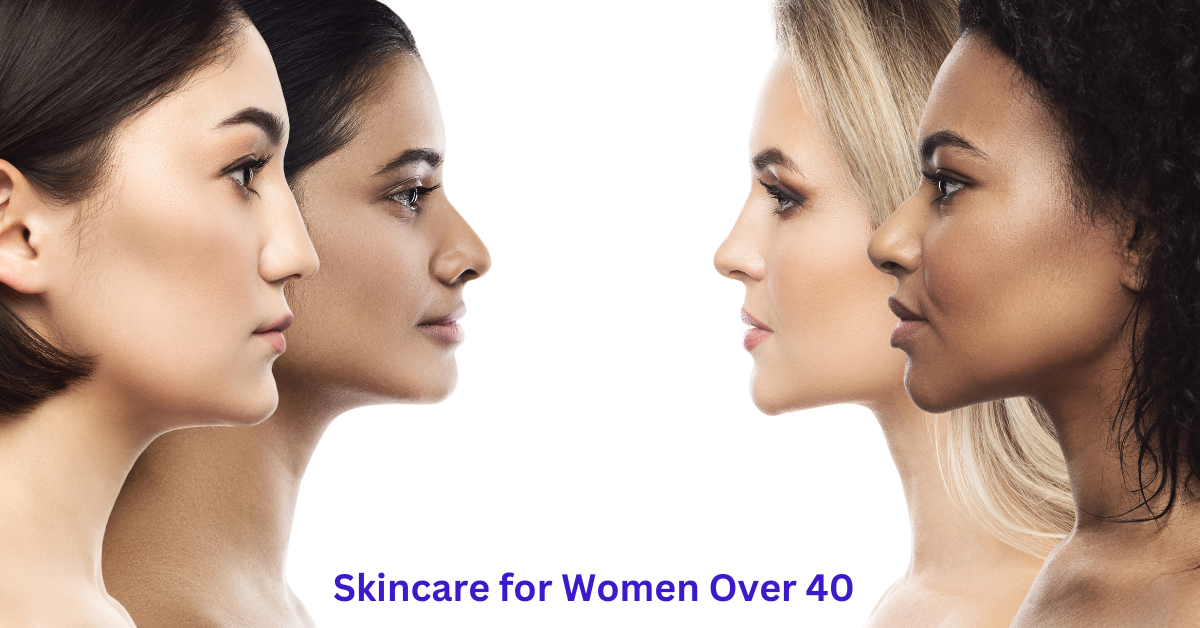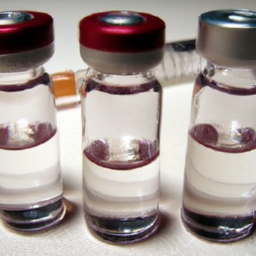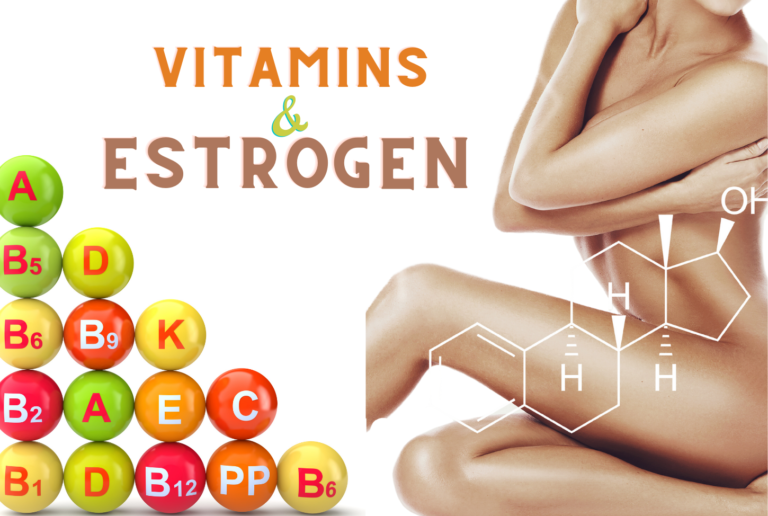The Art of Timeless Beauty: Mastering Skincare for Women Over 40
The Importance of Skincare for Women over 40
As we age, our skin goes through a lot of changes. It becomes thinner, drier, and less elastic.
Wrinkles and age spots start to appear, and fine lines become more noticeable. But just because these changes are inevitable doesn’t mean we can’t take steps to slow them down.
That’s where skincare comes in. Skincare is important for women over 40 because it can help us maintain healthy, radiant skin as we age.
Our skin is the largest organ in our body, and it plays a vital role in protecting us from the environment. It not only shields us from harmful UV rays but also helps regulate our body temperature and keeps toxins out.
But as we grow older, our skin loses its ability to regenerate itself as quickly as it used to. That’s why taking care of your skin becomes even more important once you hit your 40s.
The Benefits of Taking Care of Your Skin
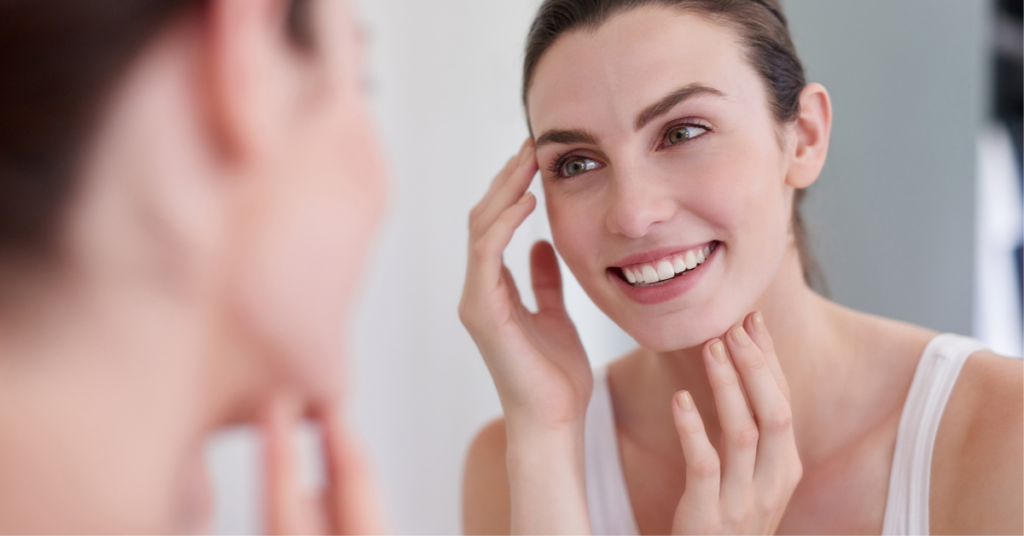
The benefits of taking care of your skin go beyond just looking good – although that’s certainly a plus! When you give your skin the attention it deserves, you’re also investing in your overall health and well-being. One major benefit of skincare is that it helps protect against sun damage.
Sun exposure is one of the leading causes of premature aging – think wrinkles, dark spots, and sagging skin – so using products with SPF can help prevent these signs from appearing. Another benefit of taking care of your skin is that it can help boost collagen production.
Collagen is a protein that gives our skin its firmness and elasticity, but its production slows down as we age. By using products with collagen-boosting ingredients like retinoids or peptides regularly, you can help keep your skin looking plump and youthful.
Skincare can also be an act of self-care – taking a few minutes each day to pamper yourself and focus on your physical well-being can have a positive impact on your mental health as well. Plus, who doesn’t love the feeling of soft, smooth skin?
Skincare is not just about vanity – it’s an important aspect of maintaining our health and well-being as we age. With the right products and techniques, we can keep our skin healthy and radiant for years to come.
Cleansing
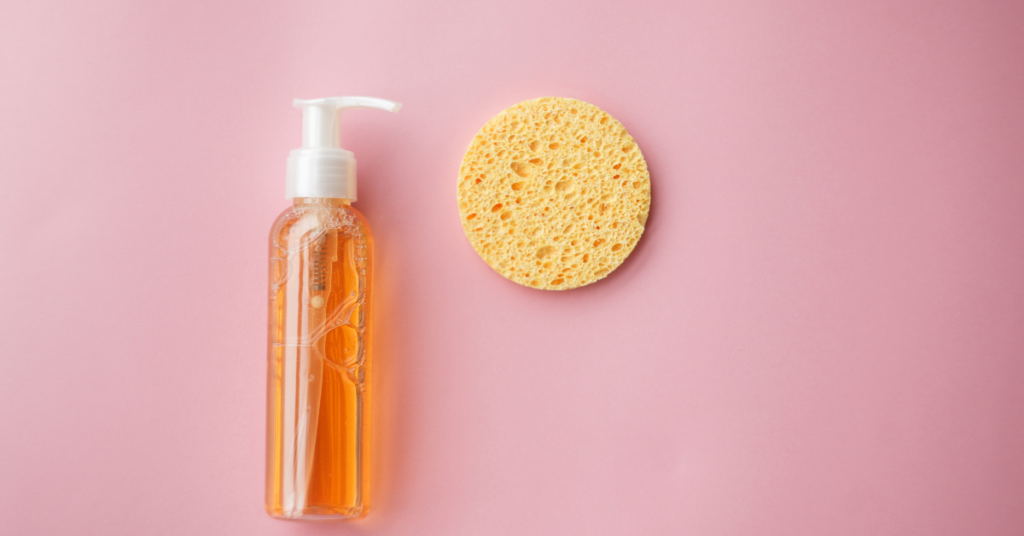
Good skin starts with a good cleanser. Cleansing helps remove dirt, oil, and makeup that can clog pores and lead to breakouts.
But with so many different types of cleansers on the market, how do you choose the right one? Firstly, it’s important to understand your skin type.
Do you have dry or oily skin? Sensitive or acne-prone?
Look for a cleanser that’s specifically formulated for your skin type. If you’re not sure, talk to a dermatologist or esthetician.
Next, consider the ingredients in your cleanser. Avoid harsh ingredients like sulfates which can strip the skin of its natural oils.
Instead, look for gentle yet effective ingredients such as salicylic acid or glycolic acid which help exfoliate and unclog pores. When washing your face, take your time and be gentle – don’t scrub too hard!
Use lukewarm water instead of hot water which can also strip the skin of moisture. And always follow up with a moisturizer to replenish any lost hydration.
Moisturizing
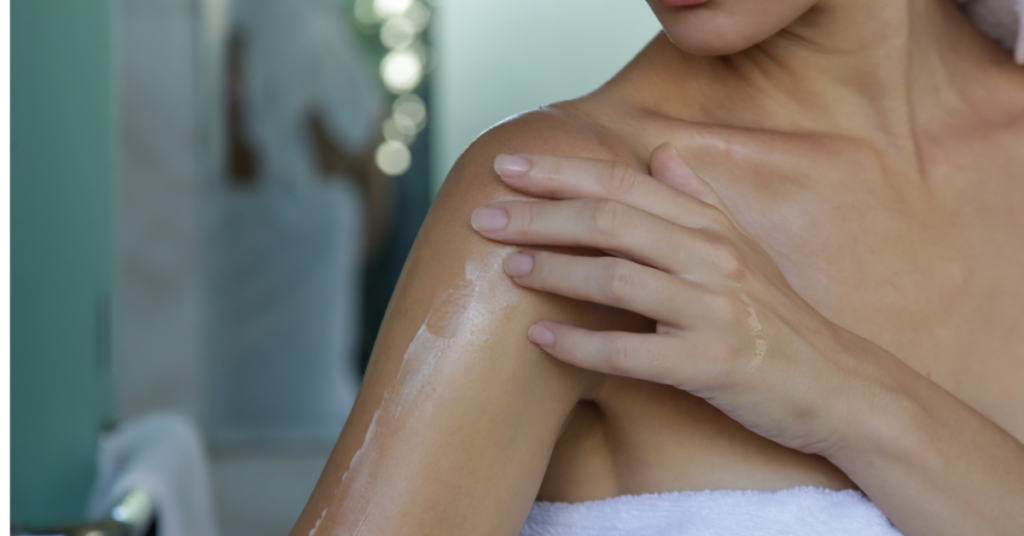
As we age, our skin loses moisture and becomes less supple which can lead to fine lines and wrinkles. That’s why moisturizing is an essential step in any skincare routine. The key to finding the right moisturizer is again considering your skin type.
If you have dry skin, look for a rich cream formula that will deeply hydrate without feeling greasy. Combination or oily skin types may benefit from a lightweight gel or lotion formula.
You should also consider other factors like climate – if you live in a dry area you may need a heavier moisturizer – and any specific concerns such as sensitivity or acne-prone skin. When applying your moisturizer, be gentle and use a light touch.
Massage it into your face and neck to ensure full coverage. And don’t forget other areas like your hands and chest which can also benefit from moisturizing.
Sun Protection

One of the most important steps in any skincare routine is protecting your skin from the sun’s harmful rays. Sun damage can lead to premature aging, sun spots, and even skin cancer. The best way to protect yourself is by using a broad-spectrum sunscreen with an SPF of at least 30.
Apply it liberally to all exposed areas – not just your face – and reapply every two hours or after swimming or sweating. In addition to sunscreen, consider other protective measures such as wearing a hat or seeking shade during peak sun hours (10am-4pm).
And remember that even on cloudy days UV rays can still penetrate the skin so it’s important to wear sunscreen daily. By incorporating cleansing, moisturizing, and sun protection into your daily routine you’ll be on your way to healthy, glowing skin – no matter what age you are!
Anti-Aging Skincare
Retinoids: The Game-Changer for Aging Skin
Let’s talk about retinoids, the superhero ingredient of anti-aging skincare. Retinoids are a derivative of Vitamin A and are known for their ability to help reduce fine lines, wrinkles, and dark spots. They work by increasing cell turnover and stimulating collagen production.
You can find retinoids in many forms such as creams, serums, and oils. It’s important to note that some retinoids can be too harsh for sensitive skin.
If you’re new to using retinoids or have sensitive skin, start with a lower concentration or talk to your dermatologist about which product would work best for you. Also, always make sure to use sunscreen daily because retinoids make your skin more susceptible to sun damage.
Antioxidants: Protection Against Environmental Damage
Antioxidants are superheroes in the skincare world because they protect our skin from environmental stressors such as UV rays and pollution. They work by neutralizing free radicals that cause damage to our cells and contribute to premature aging. Some popular antioxidants used in skincare include Vitamin C, Vitamin E, Green Tea Extracts, and Resveratrol.
These ingredients not only protect our skin but also brighten complexion and improve overall texture. When looking for products that contain antioxidants, look for those with stable forms of Vitamin C like L-ascorbic acid or tetrahexyldecyl ascorbate because they’re more effective than other forms of Vitamin C.
Peptides: Boosting Collagen Production
Peptides are amino acids that act as messengers in the body signaling specific actions like boosting collagen production. Collagen is essential for maintaining firmness and elasticity in our skin but decreases as we age contributing to sagging and wrinkles. Peptides work by penetrating the skin and signaling to cells to produce more collagen.
Some popular peptides used in skincare include Matrixyl, Copper Peptides, and Palmitoyl Pentapeptide-4. When looking for products that contain peptides, look for those that list the specific peptide on the ingredient label and are in concentrations of at least 2%.
Eye Care: A Critical Component of Skincare for Women Over 40
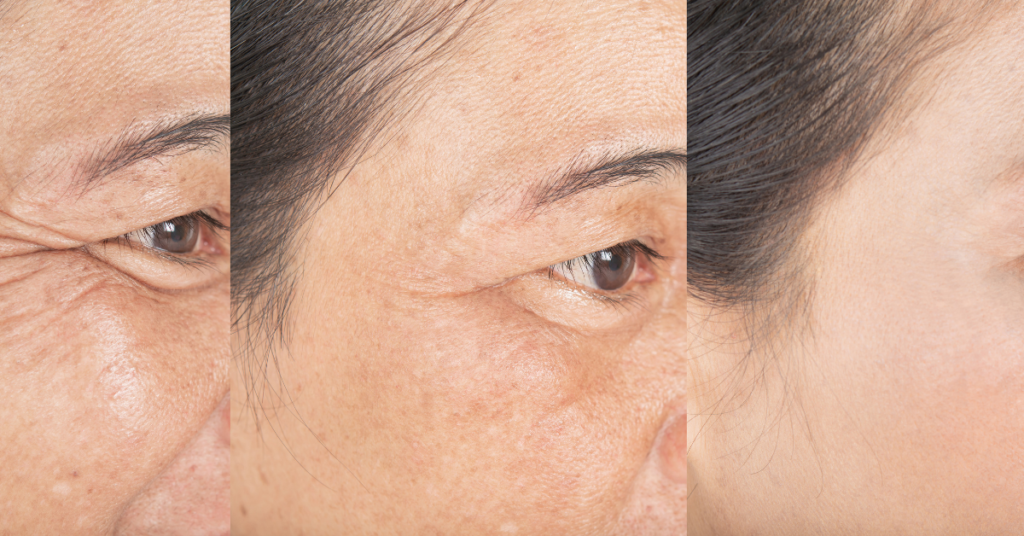
The delicate skin around the eyes is often one of the first areas to show signs of aging, making it crucial to include eye care in your skincare routine. As we age, our skin naturally becomes thinner and loses elasticity.
This can lead to fine lines, wrinkles, and dark circles around the eyes. However, by incorporating an eye cream into your daily regimen, you can help combat these signs of aging.
When choosing an eye cream, there are a few ingredients you should look for. Retinol is a powerful anti-aging ingredient that can help reduce the appearance of fine lines and wrinkles around the eyes.
Vitamin C is another great option as it helps brighten and even out skin tone while also boosting collagen production. Hyaluronic acid is a key ingredient to look for in under-eye creams as it helps hydrate and plump up the skin.
Neck & Décolletage Care: Don’t Neglect These Areas!
While many women focus on their face when it comes to skincare, it’s important not to neglect your neck and décolletage. These areas are often exposed to sun damage and can be prone to sagging as we age. To keep them looking youthful, start by extending your facial skincare routine down onto your neck and chest.
Choose products that contain ingredients like retinoids or peptides which can help firm up sagging skin over time. In addition to using specialized products on these areas, paying attention to body posture can also make a difference – try sitting up straighter so that you’re not straining these areas with poor posture.
Supplements & Nutrition: Supporting Healthy Aging from The Inside Out
It’s no surprise that what we put into our bodies affects the health and appearance of our skin. As we age, our skin may become more sensitive to damage from free radicals and environmental factors.
Incorporating certain supplements and nutrients into your diet can help protect and support healthy aging. Vitamin C is an antioxidant that can help reduce inflammation and protect against UV damage.
Omega-3 fatty acids, found in fish or supplements like fish oil, have anti-inflammatory properties as well as the ability to keep skin hydrated. Collagen supplements have also gained popularity in recent years for their potential to improve skin elasticity and reduce wrinkles.
While a consistent skincare regimen that includes cleansing, moisturizing, sun protection, and anti-aging ingredients will go a long way in keeping your skin looking youthful after age 40, don’t forget about specialized areas like the eyes, neck/décolletage region which require unique attention. Incorporating targeted supplements into your diet provides long-term benefits for healthy aging from the inside out.
5. Rarely Known Small Details
Sleep & Skin Health

It may sound cliche, but sometimes the most effective skincare practices are the simplest ones. This is certainly the case when it comes to getting enough sleep. Getting a full night’s rest (ideally 7-9 hours) is essential for maintaining healthy, youthful-looking skin.
During sleep, our bodies produce collagen – a protein that keeps skin firm and elastic – and repair damage caused by environmental stressors like UV rays and pollution. Sleep also helps reduce inflammation and puffiness around the eyes, which can contribute to a tired, aged appearance.
If you’re having trouble getting enough sleep, there are several strategies you can try. Establishing a regular bedtime routine can help your body recognize when it’s time to wind down for the night.
Avoiding caffeine and alcohol in the evening can also improve your sleep quality. If you’re still struggling to fall or stay asleep, consider speaking with your doctor or a sleep specialist for additional support.
Summary
Taking care of your skin as you age is an investment worth making. While there are countless products on the market promising miraculous results, focusing on the basics – like cleansing regularly and using SPF – will always be key.
Additionally, incorporating anti-aging ingredients like retinoids and antioxidants can help boost collagen production and protect against environmental damage. Remember that no matter what products you use or how much money you spend on them, taking care of your skin starts from within.
Eating a balanced diet rich in vitamins and minerals (especially vitamin C), staying hydrated by drinking plenty of water throughout the day, and exercising regularly to improve circulation – all of these practices play a crucial role in keeping skin healthy. At the end of the day (or rather night), don’t forget about getting enough quality sleep!
We all know that sweet feeling of waking up to glowing, refreshed-looking skin after a full night’s rest. Investing in habits and practices that support healthy aging will pay off in the long run and leave you feeling confident and radiant at any age.

